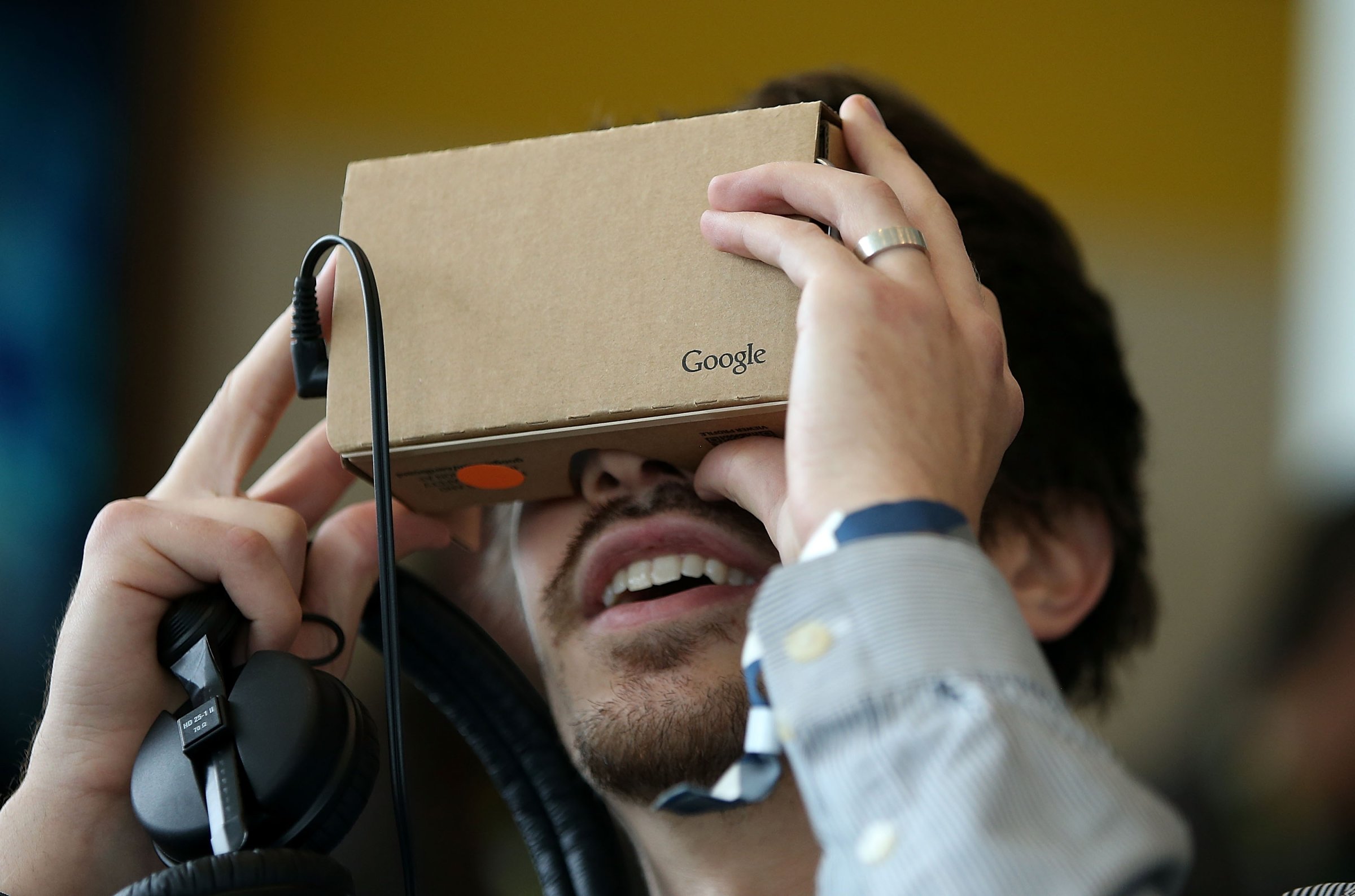
Virtual reality newcomers are bound to be overwhelmed by the mesmerizing, lifelike visuals that surround them when putting on a VR headset for the first time. But creating an immersive audio experience is just as necessary to make a virtual reality environment feel realistic. Now, Google is helping developers do just that.
The company recently announced that the software development kit for its Cardboard headset will now support spacial audio. Translation: audio in VR will behave more like the sounds we hear in our everyday lives. Google likens this effect to the way sound changes when a firetruck zooms by or when an airplane is heard passing overhead.
Support for spacial audio is coming to Android and Unity, a development platform that’s used to build high-end mobile games.
The ‘Hoverboard’ Scooter

Developed by multiple brands
Buy here
Part Segway, part skateboard, the self-balancing scooter—generally known as a hoverboard, even though it doesn’t actually hover—is easily the year’s most viral product, drawing fans like Justin Bieber, Jimmy Fallon and Kendall Jenner. Once someone hops on, the device uses a pair of electric gyroscopes (one under each pad) to balance automatically, allowing users to speed forward, backward and around by slightly shifting their body weight. That enables all kinds of fun stunts, ranging from hallway races to motorized dance routines. Maxx Yellin, co-founder of PhunkeeDuck, one of more than 20 companies making versions of the device, sees larger implications. “It could evolve as a new form of transportation for cities and colleges,” Yellin says (though British authorities recently caused a stir by outlawing their use on public sidewalks and streets). But convenience comes at a cost: prices range from $350 to $1,700, depending on the brand and its features. —Lisa Eadicicco
The Underground Park

The Lowline Lab
Developed by Dan Barasch and James Ramsey
“It’s not like any park you’ve ever seen before,” says Dan Barasch of the Lowline, an abandoned trolley terminal in New York City’s Lower East Side that he and architect James Ramsey are trying to turn into an acre of lush green space, replete with flowering plants and areas to relax in the sun. The key: a “remote skylight” dish system that captures sunlight from surrounding rooftops and funnels it underground via fiber-optic cable; once there, it’s beamed out via reflective dome, enabling plants to grow. To prove the technology works, Barasch and Ramsey opened the Lowline Lab; it’s a prototype version of the final park, which is still several approvals—and $70 million in funding—away from completion. But Barasch, who attracted more than 3,300 backers on Kickstarter, is undeterred. Even forgotten places, he says, can still be used “for public good.” —Julie Shapiro
The Sensor That Sniffs Out Gluten

6SensorLabs’ Nima / $199
Available for preorder at NimaSensor.com
For the millions of Americans with celiac disease or gluten sensitivity, eating out is often anxiety-ridden—any menu item might contain traces of the protein, which is off-limits. The Nima sensor, which starts shipping early next year, would work to put their minds at ease by allowing them to test any kind of food or drink in as little as two minutes. After a sample is dropped into the well of the device, a proprietary antibody (loaded in a disposable cartridge) mines it for traces of gluten. If they exist, a frowning face lights up; if not, a smile appears. “My hope is that people are going to be able to eat socially” without accidentally getting sick, says Shireen Yates, a 6SensorLabs co-founder who is gluten-sensitive. The firm also hopes to apply its technology to detect other food allergens, including peanuts and dairy. —Alice Park
Bionic Ears

Doppler Labs Here Active Listening Earbuds / $249
Waitlist open at Hereplus.me
If you’re stuck somewhere with unbearable noise, you essentially have two options: plug your ears, or leave. But what if you could isolate the most grating sound and mute it? Or just lower the volume, much as you would on a TV? That’s the promise of the Here Active Listening system, a groundbreaking set of earbuds from New York–based Doppler Labs. Unlike hearing aids, which amplify or decrease all noises at once, Here’s processor syncs with a smartphone app, so users can handpick which frequencies they want to filter. That means you could stand on a subway platform and have a normal conversation as a train screeches by, or even tune out a crying baby on a plane. “It’s augmented audio reality,” says Doppler Labs CEO Noah Kraft, who initially developed Here for musicians and concertgoers before pivoting to a general audience. The first earbuds will ship in December. —Alex Fitzpatrick
The Superior Stethoscope

Eko Core (buy here)
Developed by Connor Landgraf, Jason Bellet and Tyler Crouch
If there is one aspect of medicine that’s more art than science, it’s the way doctors listen to heartbeats—trusting their fallible ears and memory to detect aberrations over time. Not so with Eko Core. Once the $199 smart adapter is attached to a stethoscope, it streams heartbeat data to the cloud so physicians can download it to a smartphone. From there, a companion app can analyze the audio and compare it to previous recordings, which may help doctors detect murmurs, heart-valve abnormalities and other conditions that “our ears are not able to,” says Dr. John Chorba, a cardiologist (and mentor to one of the inventors) who’s leading an Eko trial at the University of California, San Francisco. If the device works as planned—early signs are positive—it could not only improve overall care but also drastically reduce the need for expensive tests like echocardiograms. —Alice Park
The Headset That Helps You Hack Life
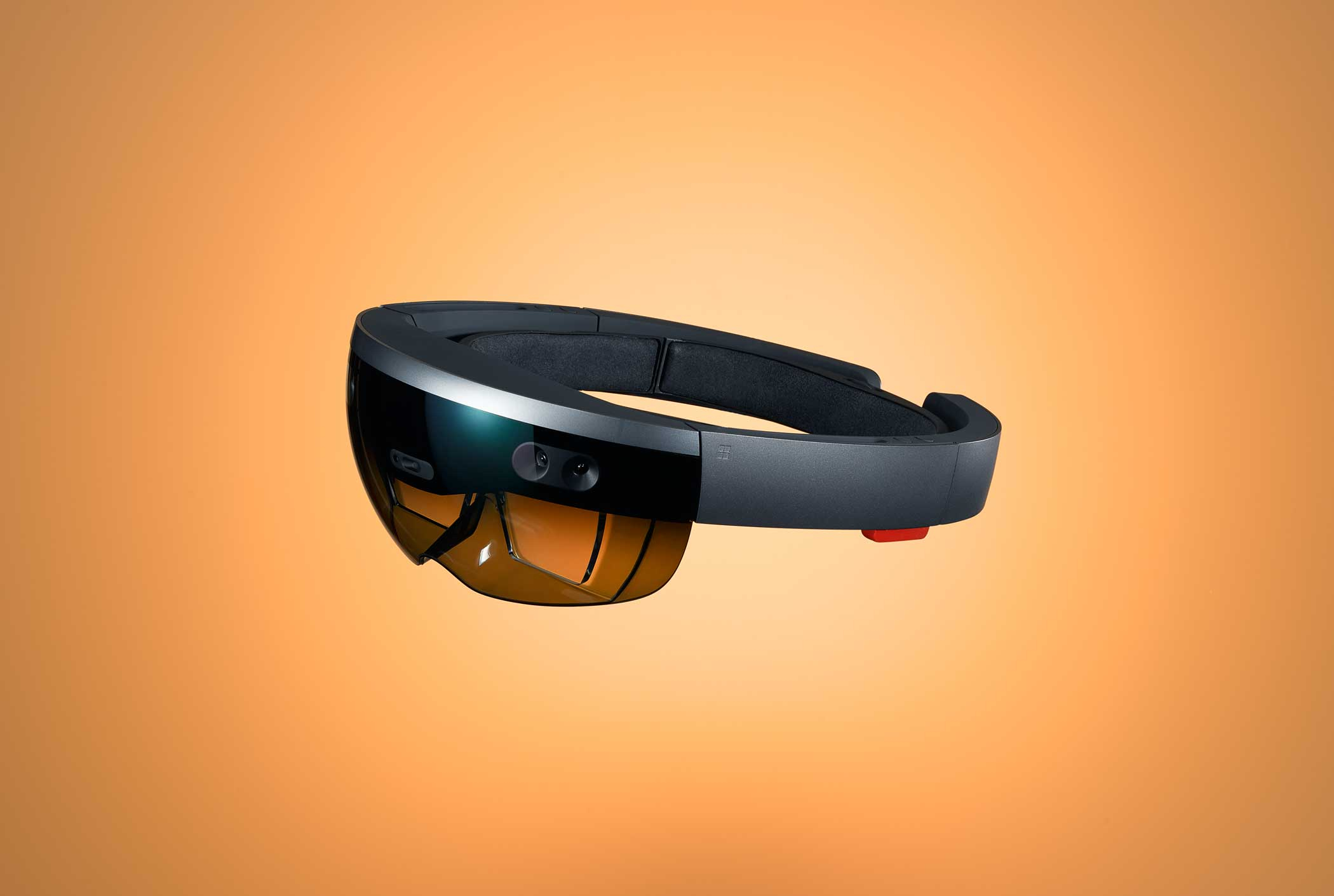
Virtual-reality headsets, like the Oculus Rift, create escapes. Put one on, and you’re suddenly swimming with dolphins or fighting in the Battle of Waterloo. Microsoft’s HoloLens, by contrast, augments reality—overlaying holograms and data onto existing surroundings, so you’re not “confined to the virtual world,” as designer Alex Kipman puts it. Imagine gamers defending their homes from robot invaders, engineers manipulating 3-D models or surgeons following directions “on” the human body. Early tests indicate all are possible. Already the HoloLens is being used by NASA to mimic Mars’ terrain in labs and by medical students to dissect virtual bodies. —Alex Fitzpatrick
Power Pasta

Banza Chickpea Pasta / $4+ per 8 oz. box
Buy here
“When people think of pasta, they almost always think, I ate way too much and now I feel like crap,” says Brian Rudolph. Not so with his brand, which is made from chickpeas instead of wheat. That simple switch—in a recipe perfected over 10 months of trial and error—has yielded a healthy twist on the al dente dinner. Banza, shorthand for garbanzo pasta, has double the protein and four times the fiber of traditional pasta, and far fewer carbs; it’s also gluten-free. And to those who may question how good it tastes, consider the sales. Banza launched in two U.S. stores last year; now it’s in 1,700, including Fairway markets, where it was recently the top-selling pasta of any kind (including wheat). Now Rudolph and his brother Scott plan to reinvent products like pizza and cereal. “People want to eat better,” he says. “We see Banza as a true replacement, a more filling version of the food people love.” —Mandy Oaklander
The Desktop DNA Lab
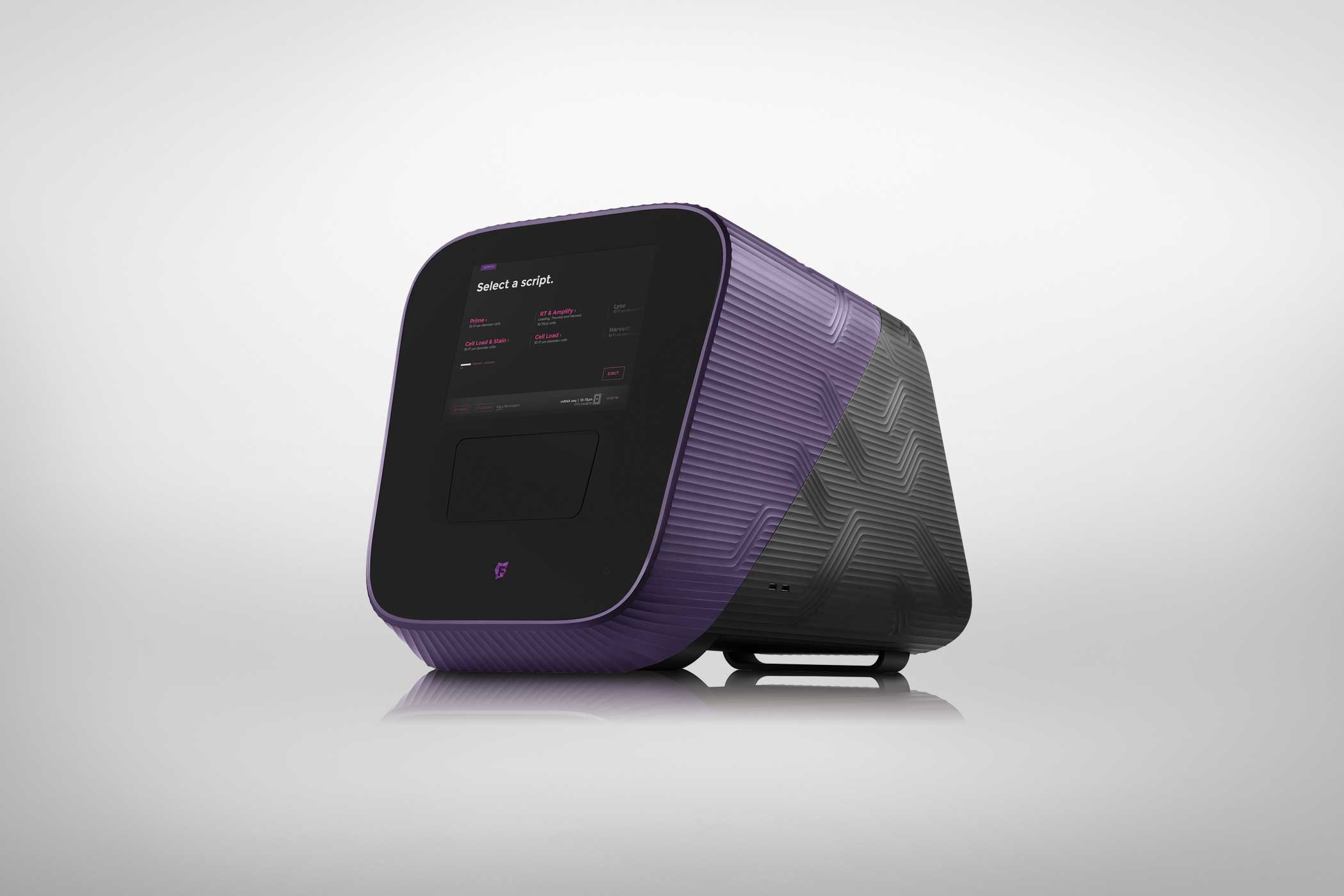
Juno
Developed by Fluidigm
It can take a full day to “amplify” DNA, the technical term for making millions of copies of one strain so it can be compared with many others. Juno cuts that process to just three hours, freeing scientists to concentrate on actual analysis—a shift that makes it easier to match bone-marrow donors, find cures for genetic diseases and more. The key is Fluidigm’s proprietary microchip, which can amplify samples that are 1,000 times smaller than a drop of water. And the sleek, Yves Béhar–designed aesthetic doesn’t hurt, either. “We see a lot of possibilities for clinical labs and hospitals,” says Marc Unger, a senior vice president at Fluidigm, of the $120,000 machine, which is now being used at academic and research labs. “We really want to help.” —Alexandra Sifferlin
Housing That Welcomes the Homeless

Star Apartments
Designed by Michael Maltzan
For decades, housing for the homeless has too often meant transient shelters or warehouse-like abodes. L.A.’s Star Apartments aims to buck that trend by design; it functions more like a minivillage than a single building, says Maltzan of his third collaboration with Skid Row Housing Trust, a local nonprofit. In addition to 102 prefabricated studios, which are ingeniously staggered into four terraced stories, Star Apartments offers a ground-floor medical clinic and, above that, a garden, an outdoor running track and space for classrooms. The goal, says Maltzan, is to make the residents of its 300-sq.-ft. units—who are handpicked by the county department of health services—feel “like they’re part of a dynamic and intimate community,” a strategy that can help people, especially those struggling with homelessness and substance-abuse issues, re-establish stability in their lives. —Richard Lacayo
The Transparent Truck

Safety Truck
Developed by Samsung and Leo Burnett
Every year, thousands of people get hurt or die in traffic accidents, in part because their visibility gets blocked by a lumbering vehicle. This is especially true in Argentina, known for its winding, narrow roads. There, however, Samsung and ad agency Leo Burnett have partnered on a creative solution: a system that relays video footage from the front of a truck to four screens on its back, giving drivers a clear view of what’s ahead. During its initial test, the Safety Truck covered some 620 miles (1,000 km) over three days without incident. Now Samsung is refining the technology and working with Argentine officials to roll it out more broadly. “We believe this will change the history of road safety,” says Sang Jik Lee, president of Samsung Electronics Argentina. —Julie Shapiro
The Next-Gen Baby Monitor

Sproutling / $299
Available for preorder at Sproutling.com
“Is my baby O.K.?” That’s the question Sproutling aims to answer—in real time—with its first product. Once in place, the Fitbit-like device can track an infant’s heart rate, body temperature, position and more, and notify parents, via mobile app, if there’s cause for alarm. (Though regular check-ins are still encouraged.) Once it learns a baby’s habits, Sproutling can also offer helpful predictions, like when he or she will wake up from a nap. “We want to get more understanding of how children behave as a whole,” says CEO Chris Bruce, a father of two. “That’s the holy grail.” —Sarah Begley
An Airport for Drones

Drone Port
Developed by Foster + Partners and Afrotech-EPFL
As Amazon, Google and others ramp up their drone-delivery tests, one question looms large: How will their home base function? For hints, the tech titans may well look to Rwanda, where workers will soon break ground on three “drone ports,” designed to make it easier to transport food, medical supplies, electronics, spare parts and other goods through the hilly countryside, where road travel is difficult. The Rwanda project “is a relatively modest beginning,” says Norman Foster, chairman of architecture firm Foster + Partners, which is leading the first phase of construction (scheduled to be completed in 2020). But, he adds, “it could be a catalyst,” helping to solve an array of pressing health issues and creating a model for other countries looking to regulate commercial drone use. —Sarah Begley
Period-Proof Underwear

Thinx / $24+ per pair
Available at Shethinx.com
For decades, women trying to avoid leaks or stains during menstruation have mainly had to rely on disposable pads, tampons and panty liners, which can be bulky and expensive. “But can’t underwear do the same thing, better?” wondered Miki and Radha Agrawal. That’s the idea behind Thinx, a line of thongs and panties that the twin sisters—alongside co-founder Antonia Dunbar and a team of manufacturers in Sri Lanka—have engineered to (mostly) replace traditional products. Each pair is washable, reusable and equipped with four layers of moisture-wicking, antimicrobial fabric. On heavier days, however, some women may need extra protection. “We always say, Know your flow,” says Miki. —Samantha Grossman
The Bed in a Box
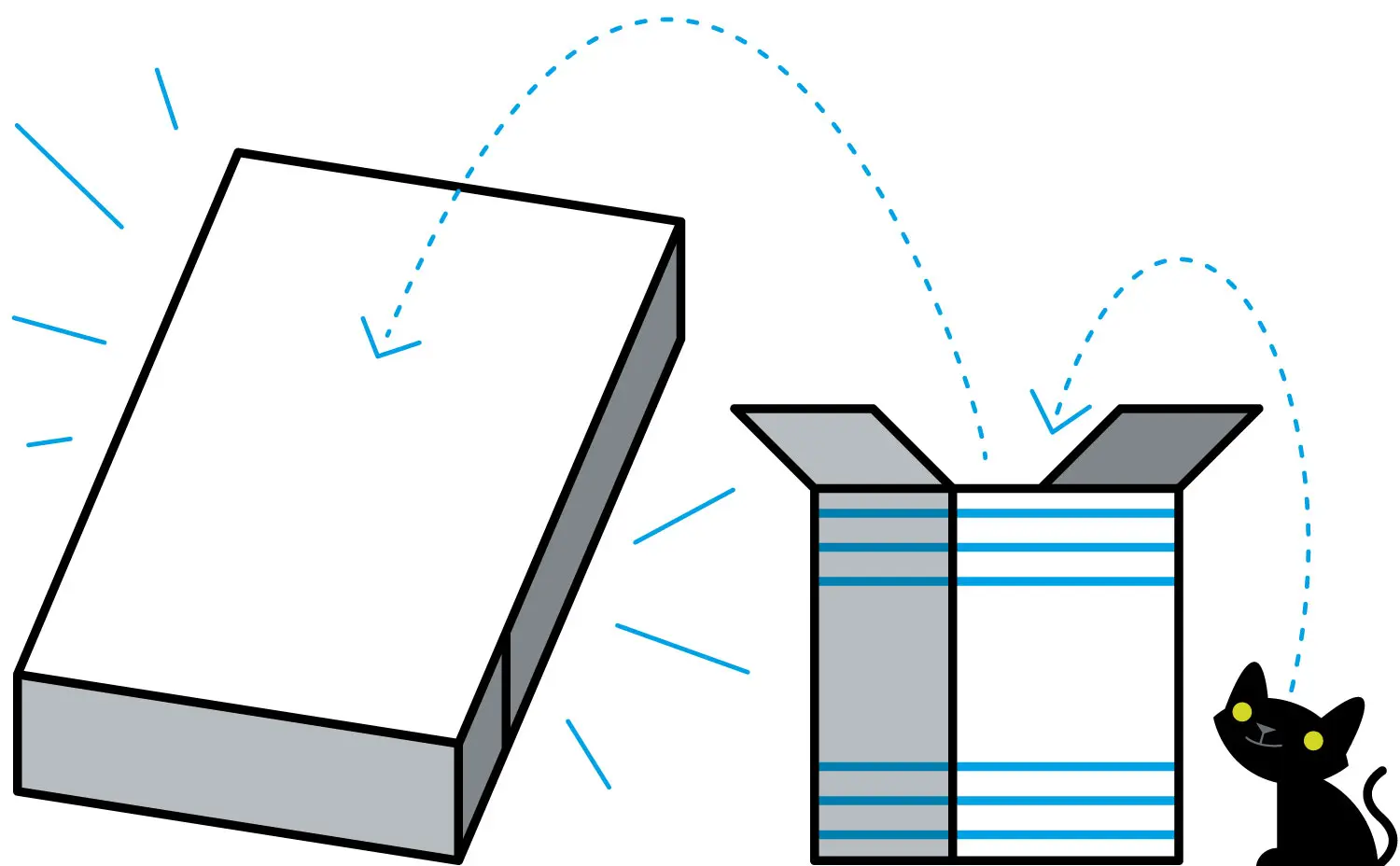
Casper Mattress / $500+
Available at Casper.com
Buying a new mattress is a lot like purchasing a used car: stressful, confusing and likely to overwhelm you with options. “We want to cut the clutter,” says Philip Krim, CEO of Casper, one of many startups upending the sleep industry, including Leesa and Tuft & Needle. The model is simple: create one mattress style; up the comfort factor (using a mix of foams); set clear prices; and sell it online (cutting costs, so prices remain low). Once the mattress arrives—it’s vacuum-packed in a cardboard box—customers get a 100-day trial period during which they can return it for a full refund. But that rarely happens, says Krim. Casper’s sales are expected to exceed $75 million this year, making it a leader among its startup competitors. —Victor Luckerson
The Virtual Brush and Canvas
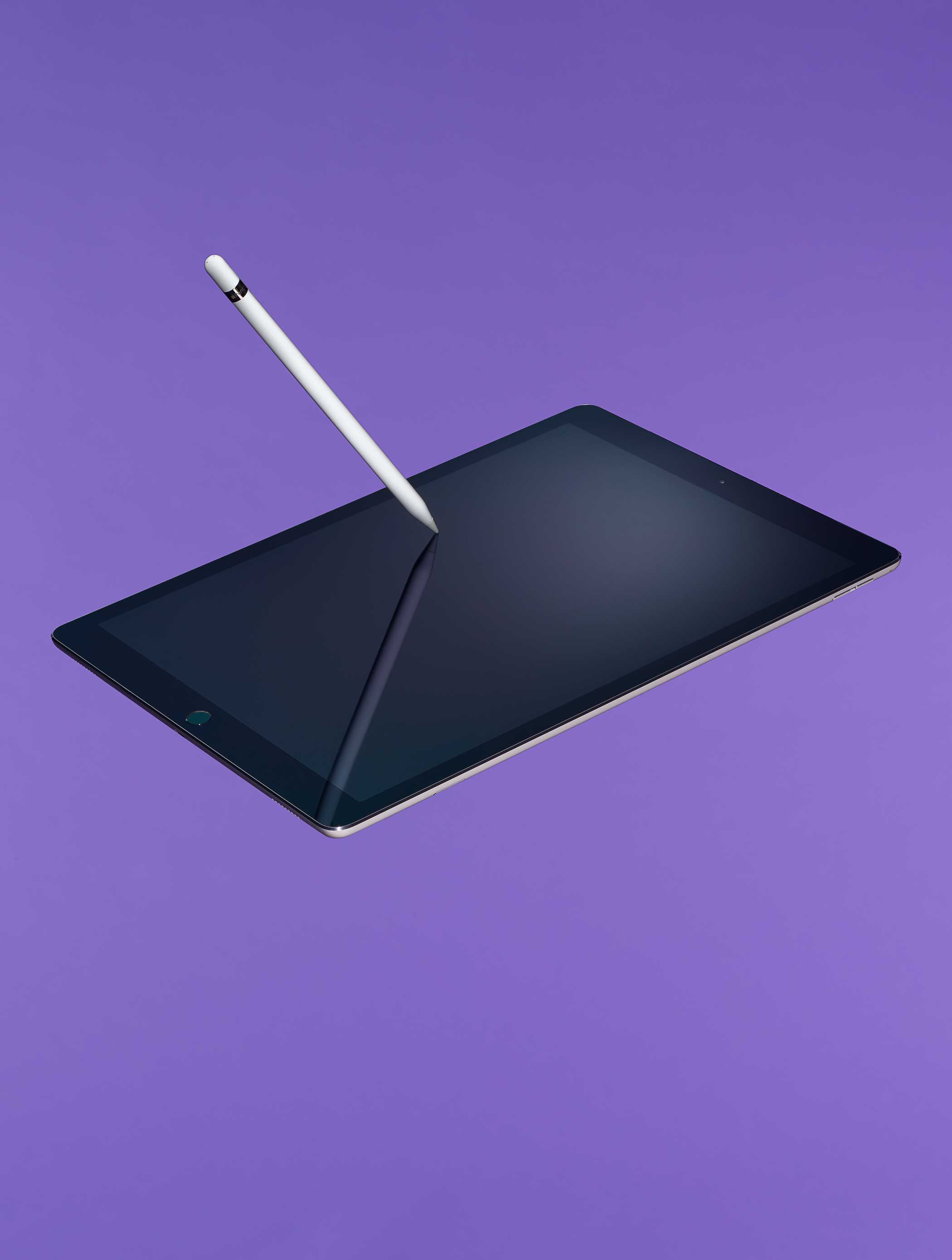
Apple Pencil and iPad Pro / $99 and $799+, respectively
Buy here
In the 450 years or so since its invention, the pencil has become so ubiquitous, it’s easy to forget how remarkable a technology it is. It can write at any angle. Shades get darker depending on how hard you press. Marks can be erased. Reproducing this functionality digitally has vexed computer engineers for years, which is what makes Apple’s latest effort so impressive. The Pencil allows users to draw, paint or write on a screen, just as they would a sheet of paper. And it works in tandem with the iPad Pro, a tablet faster than roughly 80% of laptops sold in the past year, so there’s no perceptible delay. That combination has already sparked chatter about new ways to create art, animations, blueprints and more. “You can rest your hand anywhere and [the iPad Pro screen] totally ignores it and it just reads the Pencil,” wrote Don Shank, an art director at Pixar, after testing the products in September. “It’s pretty amazing.” —Matt Vella
Shoes You Can ‘Tie’ With One Hand

Nike Flyease 8 / $130
Available at Nike.com
In 2012, Matthew Walzer, a then high school junior with cerebral palsy, sent a note to Nike: “My dream is to go to the college of my choice,” he wrote, “without having to worry about someone coming to tie my shoes every day.” Sensing an opportunity to create a new footwear category—both for casual consumers who want a simpler way to tie sneakers and for people like Walzer, who need one—Nike dispatched a design team. This year, they unveiled their solution: the Flyease 8, a LeBron James–branded basketball shoe with a one-handed fastening mechanism that drew inspiration from “opening and closing a door,” says Tobie Hatfield, the shoe’s head designer. (To tie the shoe, wearers yank on a strap, which zips around the ankle as they pull.) There are still kinks to work out; pulling the strap too hard or too fast, for example, may cause the zipper to break. But Walzer, now a sophomore at Florida Gulf Coast University, has said the shoes have given him a great “sense of independence and accomplishment.” —Sean Gregory
The Pan That Teaches You To Cook

Pantelligent / $199
Available at Pantelligent.com
How hot should the pan be? When do I stir? It it done yet? If you’ve ever cooked an unfamiliar dish, chances are you’ve asked yourself one or more of these questions—and Pantelligent aims to answer them all. Once you select a recipe from its smartphone app, the pan uses Bluetooth and a special heat sensor to offer real-time instructions on your screen, so you’ll know exactly when to flip a steak, for example, if you want it medium rare. When they first dreamed up the concept at MIT, Humberto Evans was a great cook, but Mike Robbins could barely fry an egg. Now, according to Evans, his former roommate whips up dishes like chicken piccata. “The food speaks for itself,” he says of how people can use the pans, which started shipping in October. —Samantha Grossman
The Book That Filters Water

The Drinkable Book
Developed by Teri Dankovich
An estimated 663 million people globally do not have access to clean drinking water, in part because filtration is complicated and expensive. The Drinkable Book is neither: thanks to a special treatment—developed with a team of scientists over several years—its pages double as water filters, killing over 99% of harmful bacteria during trials in Bangladesh, Ghana and South Africa. (They also list usage instructions.) Though research is still needed to determine whether the system can filter all contaminants, including viruses, Dankovich is optimistic; she says she is talking to partners who could help fund more testing and, eventually, large-scale production. —Sarah Begley
The Ocean Vacuum

The Ocean Cleanup Project
Developed by Boyan Slat
There’s a glut of plastic trash in the middle of the Pacific Ocean that’s bigger than Texas—and growing. But the default removal process of chasing it with nets is both costly and time-consuming. Instead, the Ocean Cleanup Project proposes a 62-mile-long (100 km) floating boom—at an estimated cost of $15 million—that would use natural currents to trap trash. (Its net drops roughly 10 ft., or 3 m, below the surface, shallow enough for fish to swim around.) If next year’s trials succeed, a full cleanup operation would aim to start in 2020; internal estimates suggest it could reduce the trash by 42% over 10 years. —Bryan Walsh
The Personal Pollution Detector

TZOA Environmental Tracker / $139
Available for preorder at Tzoa.com
In order to avoid potentially harmful pollutants and allergens, it helps to know about the air you’re breathing. That’s where Tzoa comes in. The stationary device, developed by electrician Kevin R. Hart, uses sensors to evaluate the atmosphere in any given area—measuring factors like temperature, particulate matter (dust, pollen, mold, car exhaust) and UV exposure—and uploads that data to the cloud, so that institutions like Johns Hopkins can conduct air-quality research. The company plans to launch wearable versions in May that offer a similar service, allowing consumers to chart specific walking routes, for example, if they want to avoid pockets of pollen. —Alexandra Sifferlin
The Ball That Teaches Kids to Code

Hackaball / $85
Available for preorder at Hackaball.com
At a time when demand for computer scientists is skyrocketing, most Americans get little or no exposure to coding during their formative years. Made by Many, a New York City–based digital-consulting firm, is trying to change that. Its Hackaball toy syncs with a mobile app, allowing users to program how and when it lights up—and then to see how those programs affect their lives in the real world. During one test, for example, kids set the ball to change colors at random intervals, then used it to play a hot-potato-style game. Enabling social scenarios—rather than a more isolated, screen-based introduction to coding—is the point of Hackaball, says William Owen, a strategy director at Made by Many. Its concept appears to be resonating: some 2,800 people backed the project on Kickstarter, raising $240,000. The first units ship in January. —Lisa Eadicicco
All-Access Virtual Reality
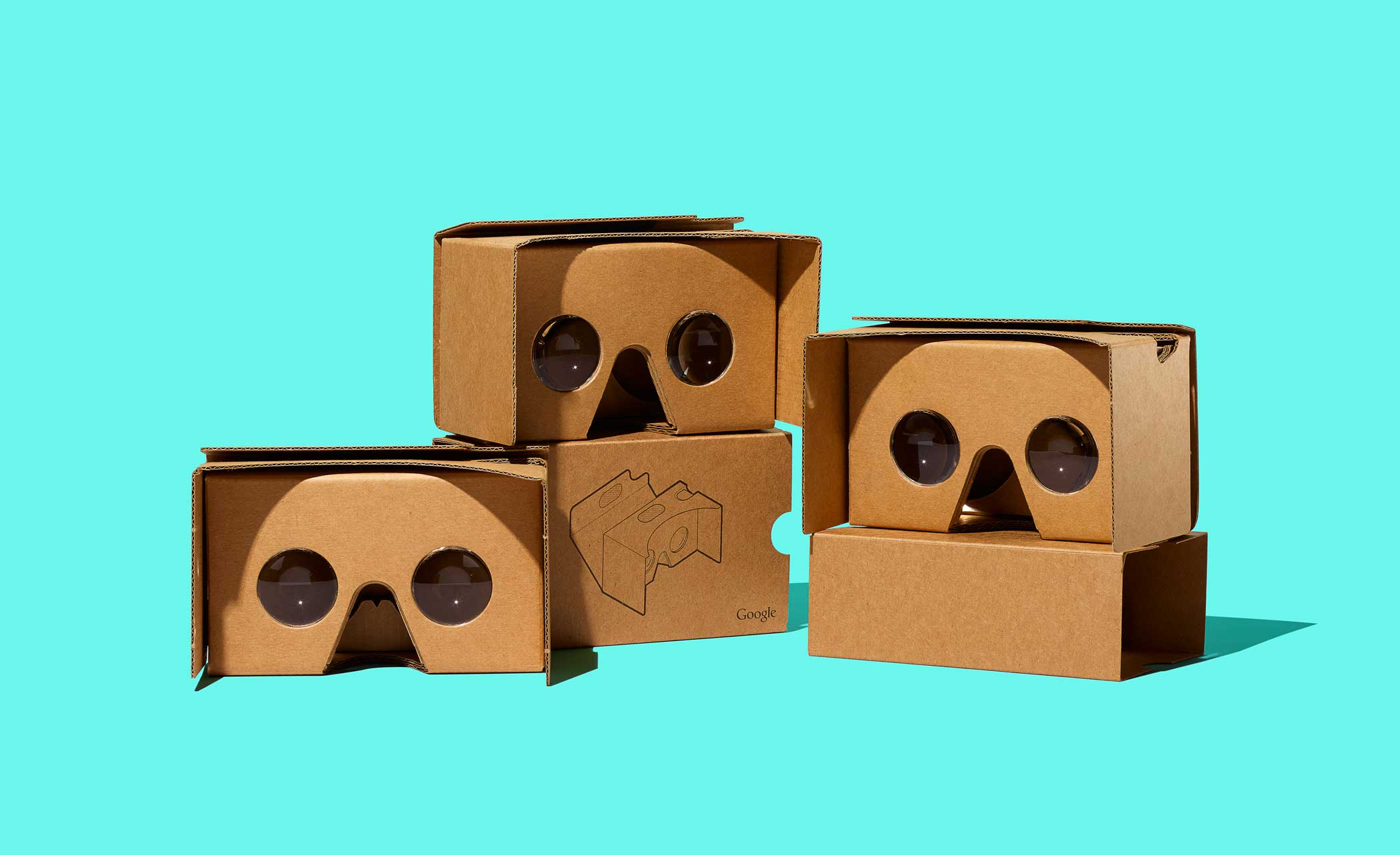
Google Cardboard / Price varies
Available DIY or from third-party sellers
Most of the hype surrounding virtual reality has rightly centered on premium headsets, such as the forthcoming Oculus Rift and HTC Vive (both of which will likely cost several hundred dollars). But Google Cardboard is revolutionary in its own right. Since its 2014 debut, the scrappy viewer—which can be built from scratch using free online instructions and relies on your smartphone screen for visuals—has emerged as a playground for virtual reality, priming brands and consumers alike for one of the world’s most anticipated technologies. There are Cardboard apps that let people drive cars (from Mercedes-Benz), attend concerts (from musician Jack White) and even play immersive video games. “We ask people, ‘Hey, put your smartphone in this piece of cardboard. It’s going to do something amazing,’” says Clay Bavor, a Google VP who oversees VR projects. “And then it does, and they’re shocked.” —Alex Fitzpatrick
The Musical Instrument That Anyone Can Master
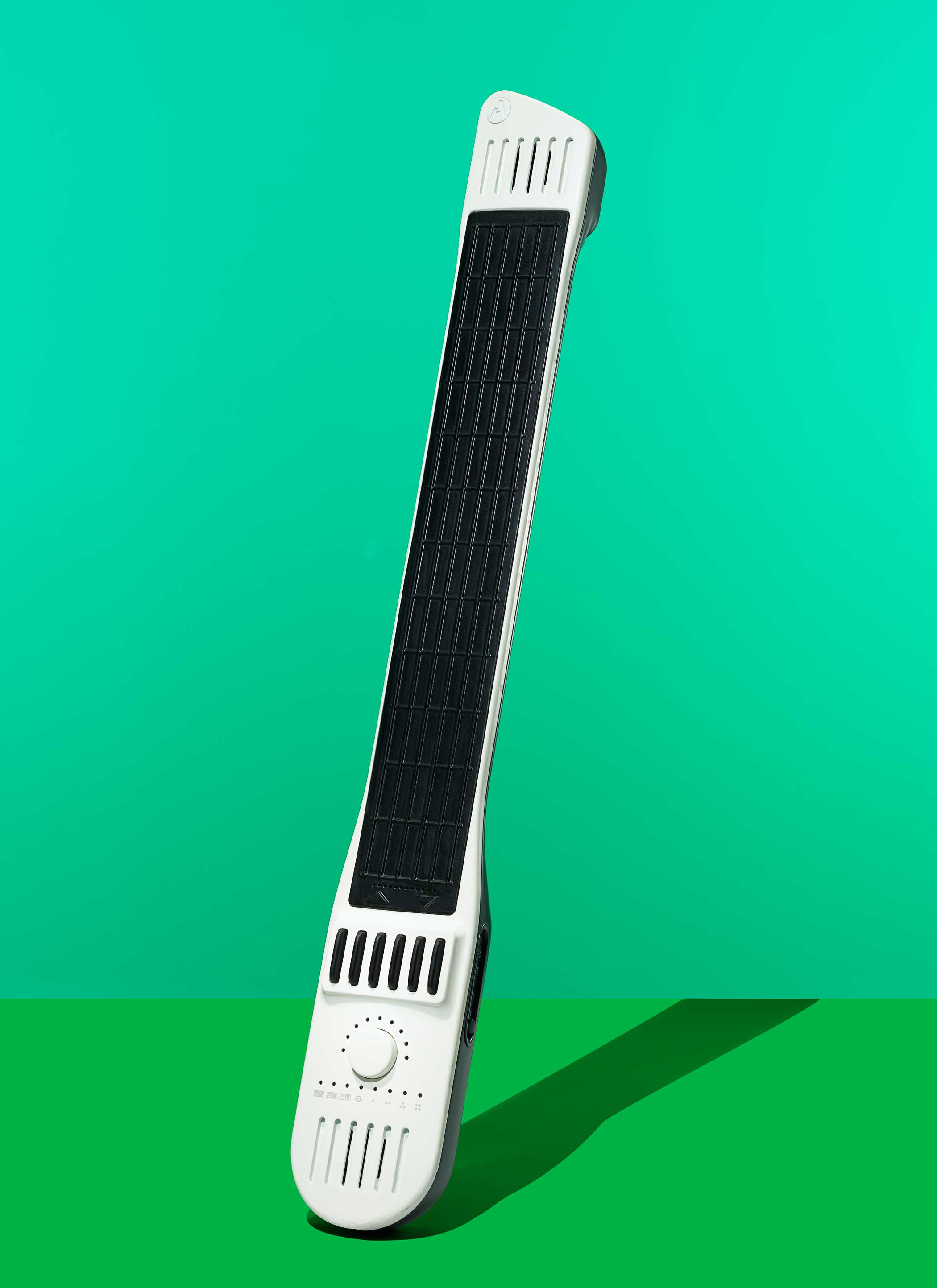
Artiphon Instrument 1 / $399
Available for preorder at Artiphon.com
An estimated 70% of adults want to play an instrument on a regular basis, but only 5% actually do, partly because it’s tough to choose just one to master. That’s not an issue with the Artiphon, which can mimic dozens of instruments—not just how they sound but also how they’re played. It can be strummed like a guitar or tapped like a piano. Or it can mix and match inputs, allowing users to bang banjo chords as if they were drumming. “We’re trying to pave a different path toward musical creativity,” says Jacob Gordon, an Artiphon co-founder, of the device (and its companion smartphone app), which raised $1.3 million on Kickstarter. —Victor Luckerson
The Meanest, Greenest Driving Machine

Tesla Model X / est. $130,000
Available 2016
Tesla’s Model X, unveiled in September, marks a leap toward a reality in which electric cars aren’t simply exotic, but just as useful as their competition. The world’s first luxury electric SUV can go 250 miles on a charge, Tesla says, and haul seven passengers. It features futuristic back doors that open like the wings of a bird (up, not out). And the Model X is a blast to drive: it can hit 60 m.p.h. from a standstill in 3.2 seconds, and its battery pack gives it a low center of gravity, enabling sports-car-like handling. (That’s rare for any SUV, let alone one that runs on clean power.) For Tesla, more than one model is at stake. As CEO Elon Musk put it during the Model X unveiling: people need to know “that any kind of car can go electric.” —Matt Vella
The Toy That Talks Back

CogniToys Dino / $120
Buy here
Rather than repeating catchphrases, as “talking” toys have done for generations, this dinosaur taps IBM’s Watson technology to engage with kids ages 5 to 9 in a meaningful way. In addition to answering plain-language queries (like “How far away is the moon?”), the wi-fi-enabled figurine talks back and learns from kids’ responses—helping them hone their math skills, for example, by asking harder questions once they nail, “What is 2+2?” and “Can you count to 10?” The trick, according to CogniToys CEO Donald Coolidge, is to make educational development seem like a “cool, fun experience.” “That’s kind of the best toy possible,” he says. —Sarah Begley
The announcement comes as both Facebook-owned Oculus VR as well as HTC are preparing to launch their high-end Rift and Vive VR headsets later this year. Both headsets are bigger, more complex virtual reality systems that need to be hooked up to a powerful computer to work. Their experiences are both higher-quality than those offered by simpler headsets like Google Cardboard.
Cardboard’s advantage, though, is that it’s much more accessible than competing headsets, even more so than Samsung’s $99 Gear VR. Most Cardboard viewers only cost about $20 and work with your phone, whereas the Oculus Rift and HTC Vive will require the support of a computer that costs upwards of $1,000. The Oculus Rift alone costs $600 before you factor in the hardware needed to support it.
Although the Oculus Rift has included spacial audio for quite some time, it’s clear that Google is aiming to make the Cardboard experience better as virtual reality becomes more popular and competitive. Industry watchers have also said in the past that audio is becoming increasingly important to the virtual and augmented reality experience. Piper Jaffray analyst Gene Munster acknowledged this when discussing Apple’s decision to hire an audio engineer from Microsoft who previously worked on the company’s HoloLens headset.
More Must-Reads from TIME
- Why Biden Dropped Out
- Ukraine’s Plan to Survive Trump
- The Rise of a New Kind of Parenting Guru
- The Chaos and Commotion of the RNC in Photos
- Why We All Have a Stake in Twisters’ Success
- 8 Eating Habits That Actually Improve Your Sleep
- Welcome to the Noah Lyles Olympics
- Get Our Paris Olympics Newsletter in Your Inbox
Contact us at letters@time.com